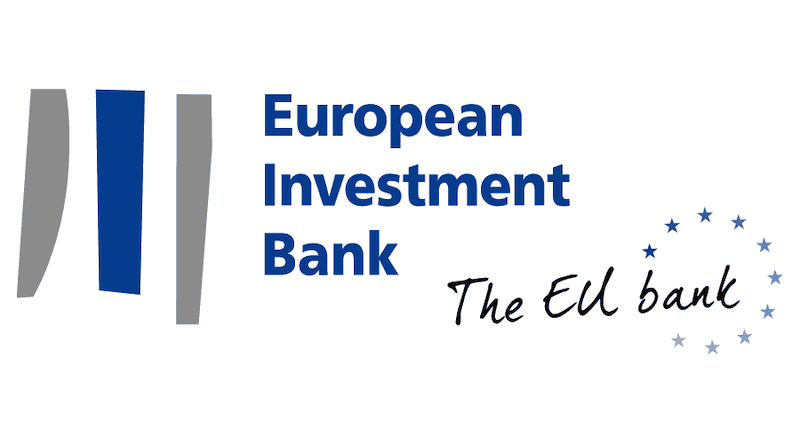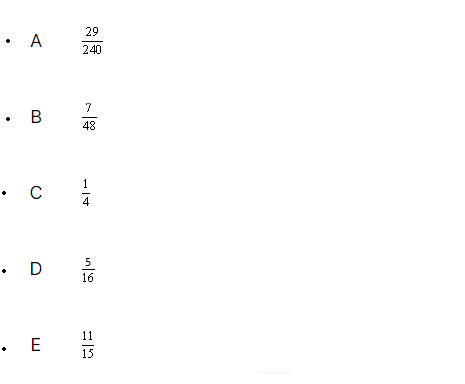
European Investment Bank Test: Numerical & Verbal Assessment Preparation Guide
The EIB is one of the most prestigious banks you can seek employment in.
Therefore, the European Investment Bank only looks to hire candidates with the right skills for the work. To ensure this, the bank puts applicants through a rigorous pre-employment testing process before calling them to interview, including numerical and verbal tests.
Given the prestigious nature of the bank, it means that competition for positions is intense. You have already worked hard on your application only to be faced with another hurdle to get to the interview stage.
But don’t worry. Although daunting, with the right preparation you can ace the EIB’s numerical and verbal assessments. And you can soon be on the path to your dream job at the EIB.
Table of Contents
What is the European Investment Bank Test?
The European Investment Bank is essentially the investment bank of the European Union. It is owned by the EU’s member states and operates lending on their behalf. There are many different job types available in the EIB from macroeconomists to bankers to lawyers.
As competitions stiff, the EIB has its own online assessments to test the skills of candidates applying to work at the institution. By doing this they can discover more about the applicants than an application and CV might tell them. It also saves them from the time-wasting process of interviewing applicants who might be unsuited to the work.
What is the EIB hiring process?
The EIB’s hiring process can be lengthy. While the process can vary depending on the role you apply for, you can expect the following:
- Submit an initial application through the bank’s e-recruitment portal including application form, CV, basic info, and 700 cover letter
- Initial screening
- Online assessment
- Digital interview
- Face to face interview
What format does the EIB test take?
A bank will need you to be good with numbers and have good critical thinking skills.
To assess if you have those skills you can expect to do tests in two areas:
- Numerical Reasoning Skills
- Verbal Reasoning Skills
Both these tests give an indication of your level of education and of the skills you can bring to the job.
The tests used by the bank are the SHL Numerical and Verbal Reasoning tests. They are considered to be among the more difficult of pre-employment tests.
Knowing this, however, puts you in a position to prepare for the tests.
How do I prepare for the EIB test?
You have already passed the first hurdle by applying and being called upon to take the test.
However, there are a further two steps to take before you undergo testing. You must:
- Become familiar with the test.
- Put yourself in a position to do some rigorous training for it.
In seeking to become familiar with the test you need to acquire similar tests to get an indication of the types of questions you will be asked. For this we recommend you rely on the services of a reliable test preparation company like Job Test Prep.
Using the services of job test prep you will get accurate information on the test. They will also help with your test preparation routine by providing you with both free resources and a test prep pack containing everything you need for the rigorous preparation you have to undertake.
Your test prep pack contains a series of sample tests, mirrored on the real one and explanations to guide you.
Essentially your test prep packs, which cover Numerical Assessment and Verbal Reasoning skills, will become your friends for the duration of your test preparation.
Numerical Assessment
Here you will not be asked about calculus or trigonometry. But you will be asked about mathematical situations you can expect to come across on a regular basis when working with the EIB. Essentially you will be tested to see if you have the mathematical skillset needed for working at one of the world’s busiest banks.
The test measures your ability to read and interpret graphs and compare tables of data. Your quantitative reasoning skills are assessed here and you are expected to search through data to find answers to questions.
Adding, subtracting, multiplying and dividing numbers, finding percentages also feature in the test and let the employer know if you have the mathematical skills needed by employees of the bank.
The questions are in multiple-choice format. The test lasts for 17-25 minutes depending on the job being applied for and you have to work quickly to answer within the time frame. Working with sample papers is essential to hone both your mathematical and time management skills.
To give you an idea of the types of questions you are likely to be asked try the following sample questions.
Sample Questions:
- What is 20% of 3 million?
- Which is larger: 10% of 3 million or 20% of 1 million?
- If a company loses 2% of its value, what is the new value of this business, if the original value was £10,000,000?
Try this longer sample question:
Lea had £2,400 in her bank account, she spent 1/6 of the money on rent, and from the remainder, she paid 2/5 for the credit card company. If Lea spent another £450 on a new coffee table, what fraction of the initial amount was left in her bank account?
To get a fuller idea of what the numerical assessment is like try this free sample test for SHL Numerical Reasoning here
Verbal Assessment
The Verbal Assessment measures your critical thinking abilities and if you can deal logically with a work-related issue.
A timed test, expect this to last for 17-19 minutes depending on the job being applied for. Generally, you have to answer 30 questions in this time span.
You will be given a passage to read and will have to decide if the statements that follow it are 1 True, 2 False or 3 Cannot say.
The difficulty many people experience with this type of questioning is they forget that the answer they select has to be based on the passage just read. Rather they tend to apply their own ideas to what should be said.
Testing for a position at EIB you need to show you can be precise and work only with the facts in front of you.
When deciding a statement is “true” the fact must be stated in the passage or it must be possible to draw that conclusion from the passage. If you answer “false,” you are saying there is no means of reaching the given statement from reading the excerpt. “Cannot say” is stating there is insufficient information in the passage to agree with or disagree with the statement.
As humans, we have a propensity to put our own spin on something we hear or are told. The best preparation for the verbal reasoning test is best done by doing the sample exercises that come with your test prep pack.
Sample questions:
Try your skills with this question. Read the passage and decide if the statement that follows is:
1) True
2) False
3) Cannot say
Remember, your answer must be based only on the information given in the passage.
A growing body of research suggests that more than one language’s regular, high-level use may improve early brain development. According to several studies, command of two or more languages aggrandises the ability to focus in the face of distraction, decide between competing alternatives, and disregard irrelevant information. These essential skills are grouped, known in brain terms as ‘executive function,’ and research suggests they develop ahead of time in bilingual children. While no one has yet identified the exact mechanism by which bilingualism boosts brain development, the advantage likely stems from the bilingual’s need to continually select the correct language for a given situation.
The research suggests that ‘executive function’ increases with the number of languages mastered.
True, False or Cannot Say?
Try your hand at a free sample SHL Verbal Assessment here.
Put a preparation plan in place
Now that you know what the tests entail it is time to put a preparation plan in place. Try the following tips:
- Find a designated place, free from distractions for your preparation sessions.
- Work out how much time, days or weeks, you have remaining to get ready for the tests.
- Draw up a timetable, designating time to actively preparing. If possible, stick to it! Do not count the day before the test into this timetable. This is a day for doing some reviews of the material covered and for allowing your mind to rest before the test.
- Build breaks into your timetable. We learn better and faster by working over short chunks of time. Aim to take a break after every 50 minutes of work. Your brain will work more efficiently after 10 minutes away from your study place.
Use your sample papers
Doing this will:
- Increase your familiarity with the style of questioning.
- Acquaint you with the timing of the test and train you to work within the time confines
- Allow you to keep track of your progress from test to test
- Help you see the areas that are bringing down your scores and may need more work
- Help you to hone your skills for the real assessment.
- Give you the confidence of knowing you are ready for the tests
How to pass the EIB test on the day?
Your mental preparation for the test day begins the night before. A proper night’s sleep will do more for your performance than any late-night study marathon.
You have done your work and deserve to approach the test with confidence. However, for even the most experienced of exam candidates being too nervous can derail your best efforts.
Have some stress-busting techniques you can fall back on if this happens to you. Deep breathing, a walk in the fresh air are all helpful or perhaps you have some techniques of your own. Have them at the ready in case you have to call on them.
If you are called to do pre-employment tests for EIB click here for resources that will help you.
Recommended Study Guides
- How to Pass Numerical Tests?
- How to Pass Verbal Reasoning Tests?
- How to Prepare for Wells Fargo Teller Test?
- How to Pass Deutsche Bank Situational Judgement Test & Interview?
- Citibank Test – Preparation Guide
- How to pass Banco Santander Test? Preparation Guide
- What are the most common SHL tests?
Sarah is an accomplished educator, researcher and author in the field of testing and assessment. She has worked with various educational institutions and organisations to develop innovative evaluation methods and enhance student learning. Sarah has published numerous articles and books on assessment and learning. Her passion for promoting equity and fairness in the education system fuels her commitment to sharing insights and best practices with educators and policymakers around the world.






